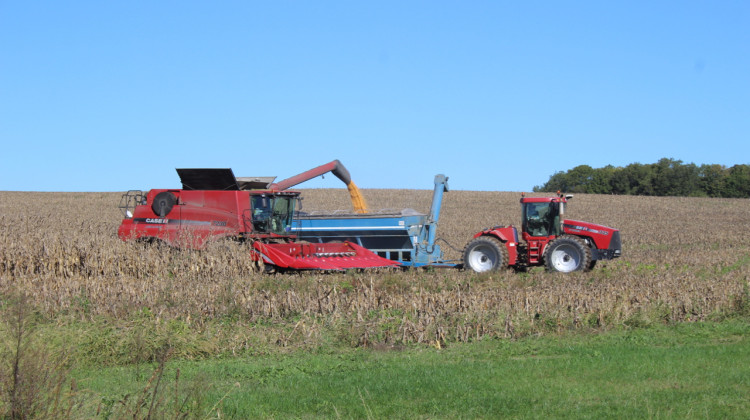
Almost 40 percent of corn and nearly 50 percent of soybeans grown in the U.S. are grown for biofuels and not food.
FILE PHOTO: Annie Ropeik / IPB NewsThe United States’ pivot to biofuels is releasing large amounts of hazardous air pollution into largely rural communities, according to a new report. The Environmental Integrity Project is calling for the end of biofuel subsidies and improved regulations of the industry’s emissions.
The report said biofuels — like corn ethanol and biodiesel from soybeans — released almost as much total hazardous air pollution as oil refineries in 2022. But unlike fossil fuel plants, biofuels have nearly twice the threshold before they’re mandated to install pollution controls.
Courtney Bernhardt is the director of research for the Environmental Integrity Project.
“It means that rural communities, largely across the Midwest, near biofuel manufacturing plants often suffer from unhealthy air quality,” Bernhardt said.
The report said lax regulations on these plants are harming the environment and communities they’re in, despite the industry’s “green-washing.”
There are 17 biofuel plants in Indiana — most of them are in towns of fewer than 10,000 residents. Those plants released more than 2 million metric tons of greenhouse gasses in 2022. And nearly half of the biofuel plants identified by the report as “high priority violators” under the Clean Air Act are in Indiana.
Join the conversation and sign up for the Indiana Two-Way. Text "Indiana" to 765-275-1120. Your comments and questions in response to our weekly text help us find the answers you need on climate solutions and climate change at ipbs.org/climatequestions.
Eliot Clay is the land use programs director at the Illinois Environmental Council. He said the federal subsidies on corn and soybeans have “decimated” rural communities.
“The death of like — what a lot of people like to call like — ‘small town America’ is largely due to the fact that the agricultural industry has become consolidated to a point that local infrastructure for processing of grains and mills and all these kinds of things have disappeared,” Clay said.
The federal push to biofuels started in the 1970s. But it was injected with new momentum through the renewable fuel program, initially authorized by the Energy Policy Act of 2005.
Almost 40 percent of corn and nearly 50 percent of soybeans grown in the U.S. are grown for biofuels and not food.
The U.S. is the largest global biofuel producer, making 18.5 billion gallons in 2022. Clay said that has pushed rural America to support monoculture crops.
“The consolidation of the agricultural industry has really decimated local economies,” he said.
The Environmental Integrity Project called on state and federal environmental regulators to better control air pollution from the biofuels industry. And it called for an end to subsidies and for funds to “be focused instead on clean energy sources like wind and solar and improving our nation’s clean energy infrastructure.”
Lauren is our digital editor. Contact her at lchapman@wfyi.org or follow her on Twitter at @laurenechapman_.
 DONATE
DONATE






 Support WFYI. We can't do it without you.
Support WFYI. We can't do it without you.